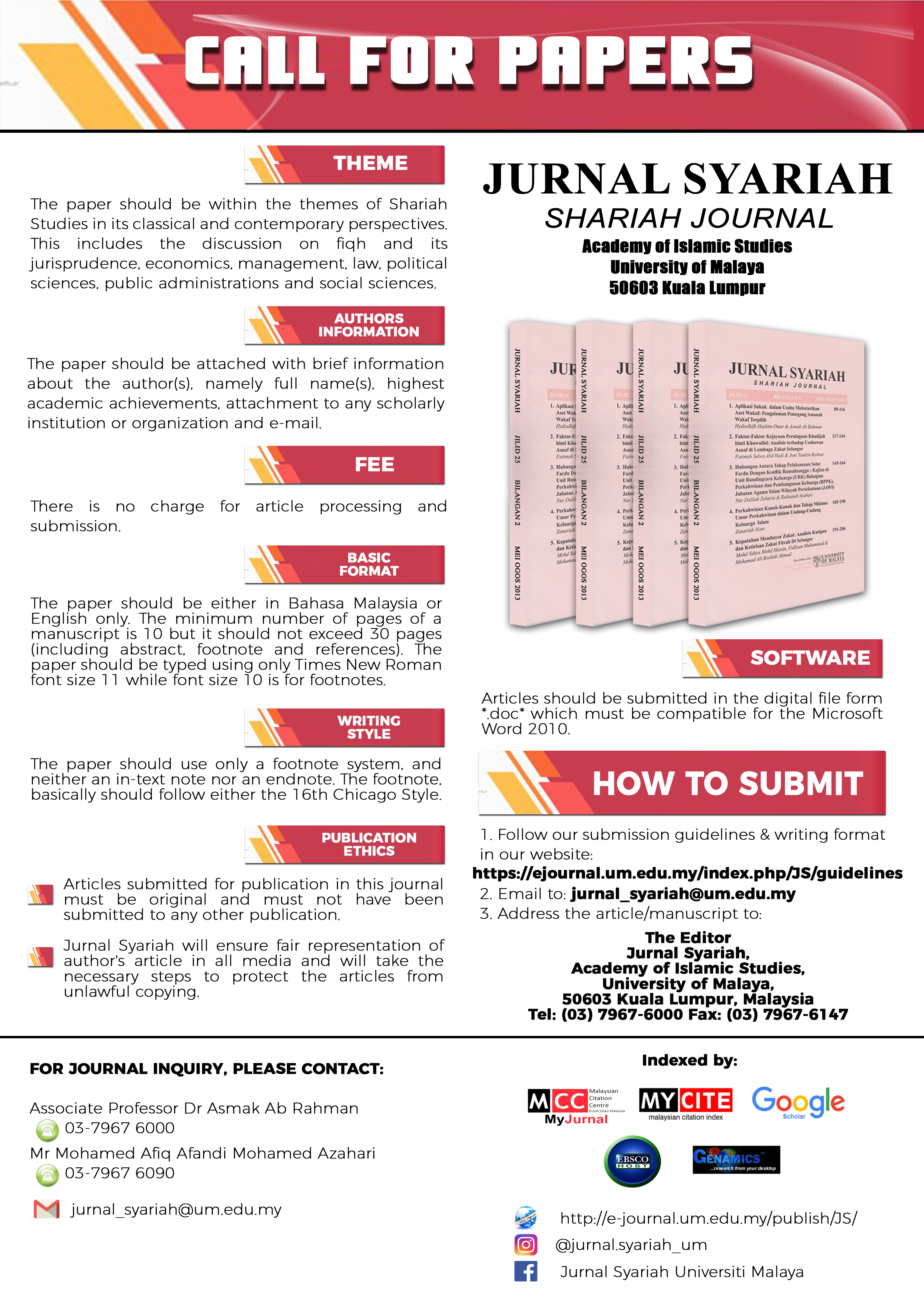MANAGING CORPORATE WAQF IN MALAYSIA: PERSPECTIVES OF SELECTED SEDCs AND SIRCs
DOI:
https://doi.org/10.22452/js.vol25no1.5Keywords:
waqf, corporate waqf, waqf management, Baitul Mal, MalaysiaAbstract
Waqf is described as an act of dedicating a corpus of property or financial assets in perpetuity for the cause of Allah SWT. The ownership of the property or assets is transferred to Allah SWT, but the benefits are dedicated to the poor, sick, marginalized segments of society, or any other virtuous causes. Waqf institutions are among several instruments instituted in Islam to combat poverty and enhance societal welfare. Waqf provides the material infrastructure and creates a source of revenue for use in, among other things, social welfare enhancing activities, both at the family, community, and state levels. Corporate waqf is defined as a type of waqf where the mawqūf (waqf assets) are in the form of shares issued and managed by a corporate entity. Corporate waqf utilizes the application of waqf principles in a corporate setting.6 Corporate waqf is more than a charitable and philanthropic act by a business entity, but is an initiative to combine the concept of waqf and apply it to achieve business and corporate objectives. Consequently, it intends to redefine the role and function of business organizations in today’s society by ‘giving back’ and reaching out to the community. This study tries to gauge the level of awareness and willingness of State Economic Development Corporations (SEDCs) and State Islamic Religious Councils (SIRCs) to be involved in corporate waqf initiatives. The study found that, in general, the SEDCs are receptive of the idea of corporate waqf entities managing and enhancing the values of waqf assets and waqf properties; however, this must be done within the current legal framework. The study also found a lack of coordination between the SEDCs and SIRCs in making decisions on waqf related matters. It is suggested that the state government, through its departments/agencies, play a facilitative role in ensuring the efficient development of waqf assets or properties.
Downloads
Downloads
Published
How to Cite
Issue
Section
License

This work is licensed under a Creative Commons Attribution-NonCommercial 4.0 International License.
COPYRIGHT: All rights reserved. Not allowed to be reproduced any part of articles and contents of this journal in any form or by any way, whether electronic, mechanical, photocopying, recording or otherwise without permission in writing from the Chief Editor, Jurnal Syariah.



















